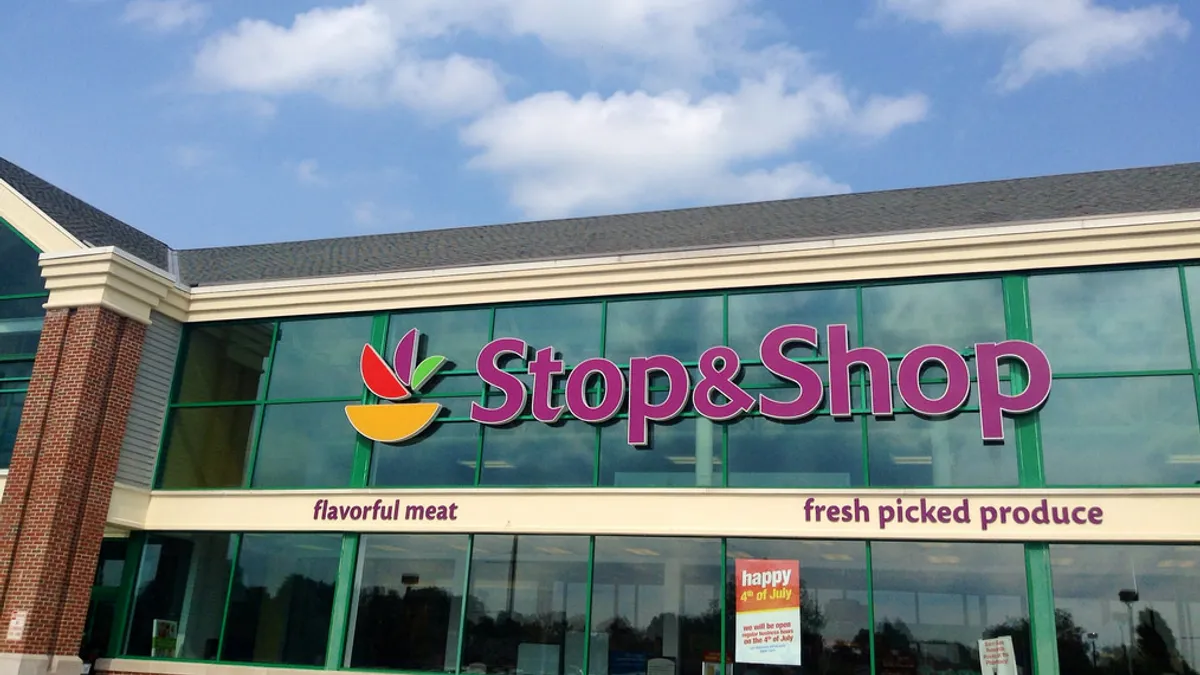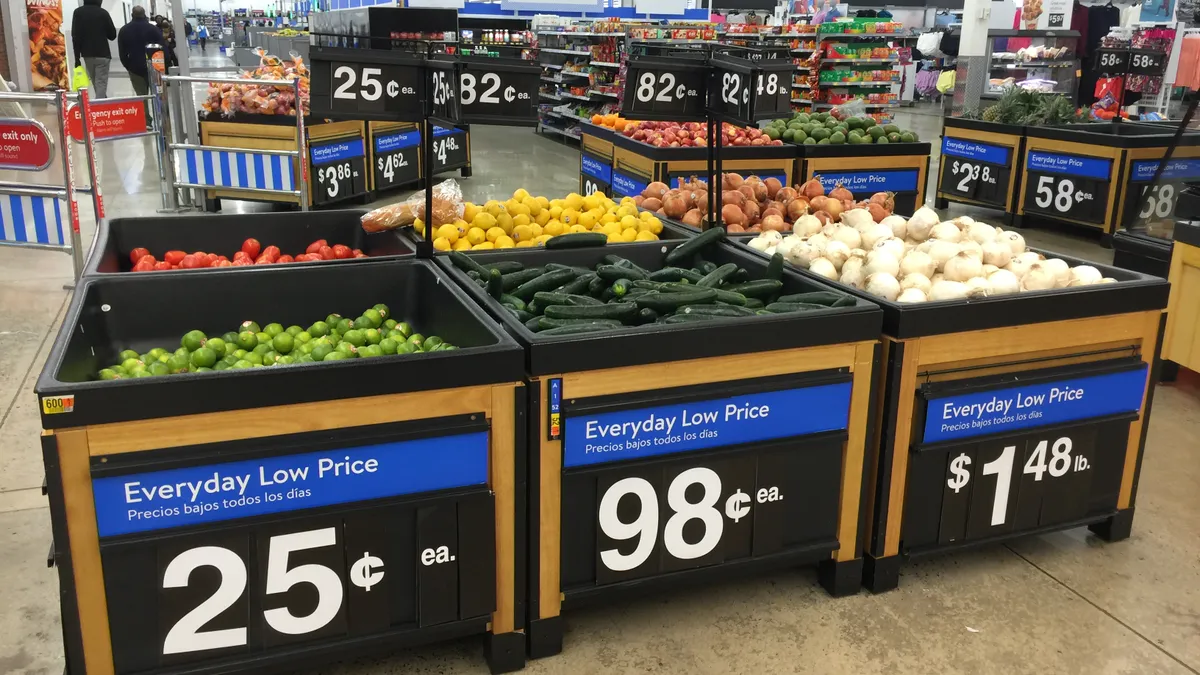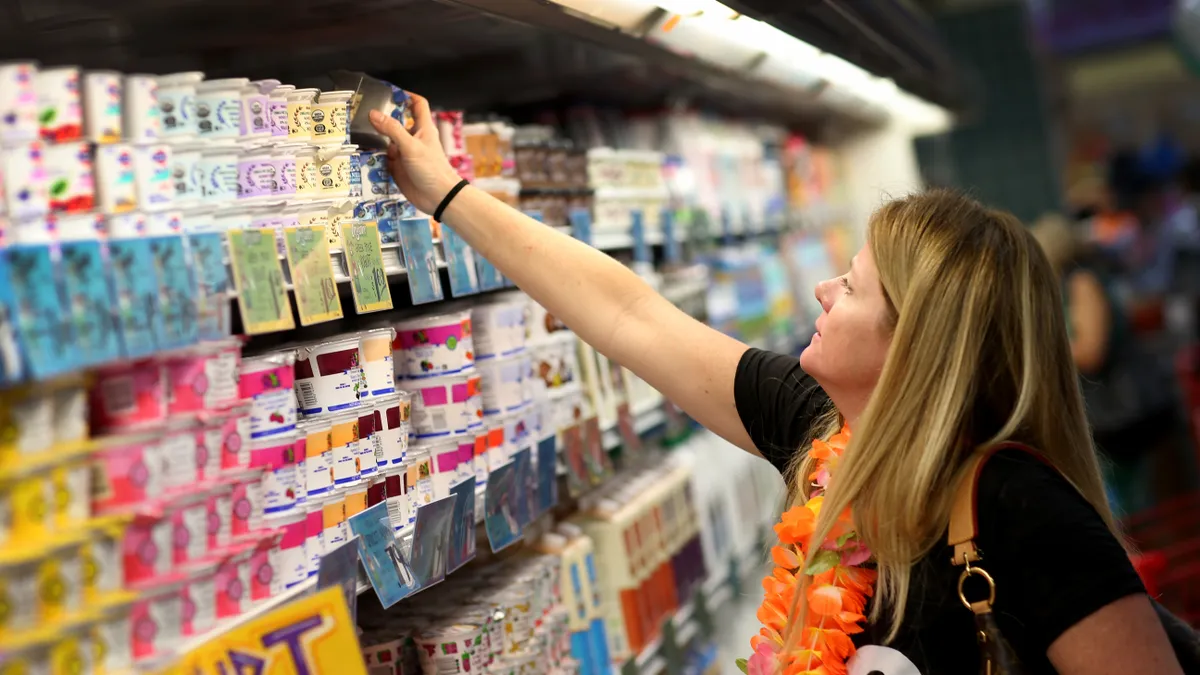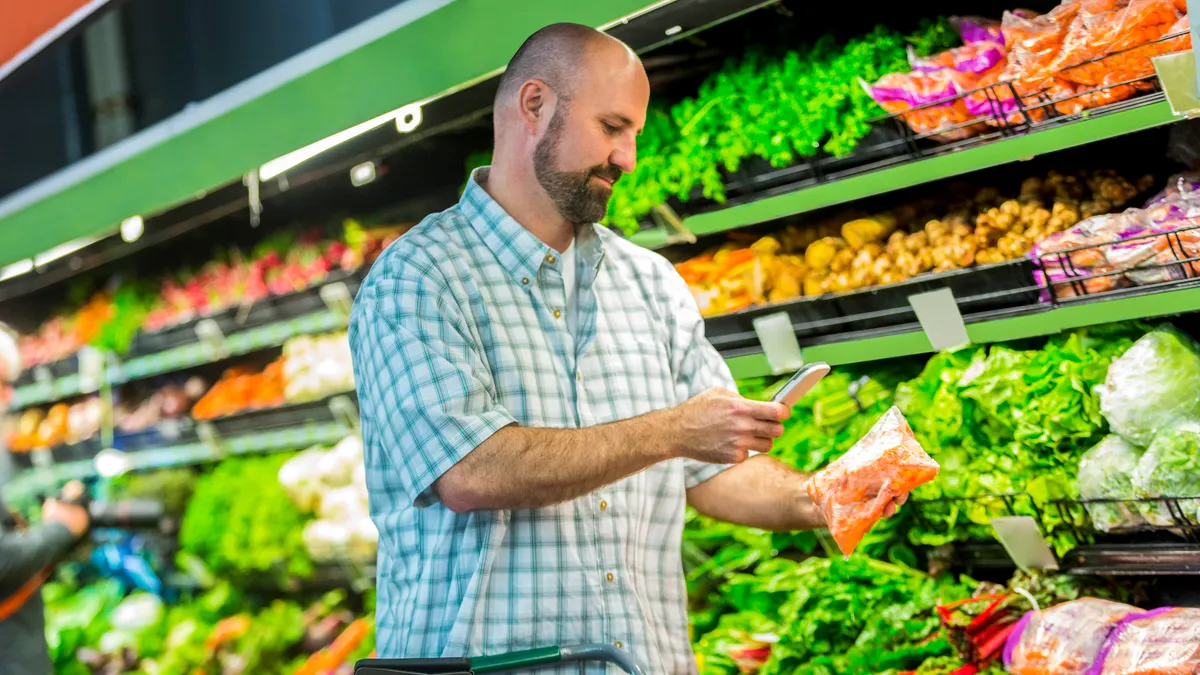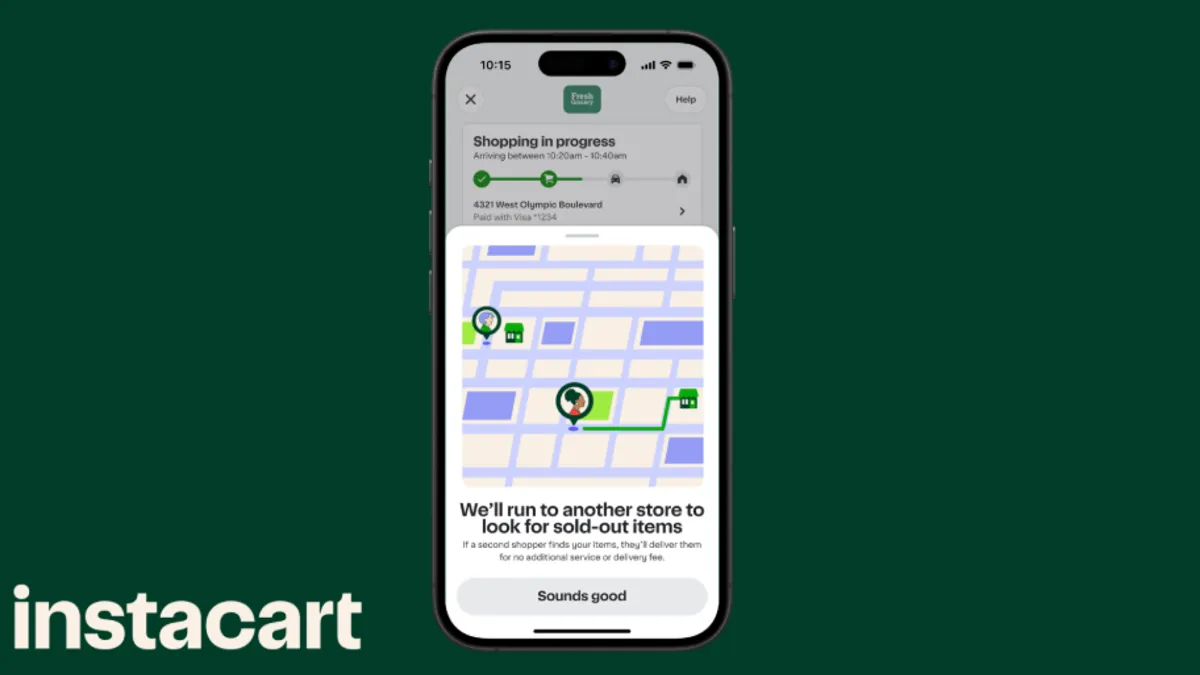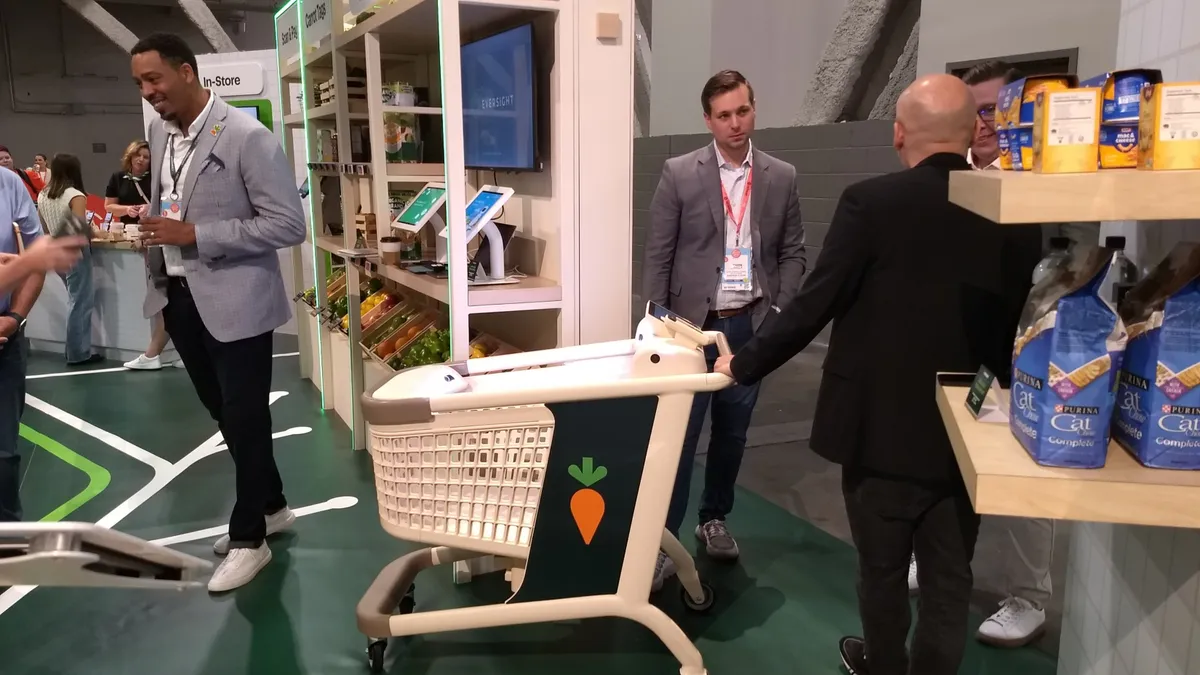In an effort to take online grocery delivery to the next level, Stop & Shop recently announced it will pilot "self-driving grocery stores" this spring on the streets around Boston. But while the announcement has been met enthusiasm, questions have emerged about the legality of the vehicles and whether or not they are safe since they haven't yet been tested on public roads.
Boston's transportation commissioner Gina Fiandaca recently told the Boston Globe that the vehicles, built by San Francisco startup Robomart, cannot be on the road without an application process and city review of a proposal. Both the city of Boston and the state of Massachusetts require companies to apply for permission before self-driving vehicles can be tested on public roads, Fiandaca said.
A spokesperson from the Massachusetts Department of Transportation told Grocery Dive in an email that while MassDOT has had informal conversations with Robomart, the department has not received an official testing application.
According to Ali Ahmed, founder and CEO of Robomart, there have been several ongoing conversations with the proper authorities. "We've been interacting with all the regulators including MassDOT, the city of Boston and others for months now. This is not new to them," Ahmed told Grocery Dive in an interview. "We’ve been engaged very closely and will continue to do so until we deploy."
Ahmed said that because the vehicles will be teleoperated locally by Robomart technicians, the vehicles are not technically autonomous, and he is not aware of a permit process for what the company is trying to do.
Stop & Shop spokesperson Jennifer Brogan told Grocery Dive in an email that the company is proud to be forging new ground in Massachusetts and wanted to let consumers know about its future plans.
"We announced an engagement with Robomart to let consumers know that in the coming months, we plan to deploy these customer-focused vehicles as an alternate shopping option," Brogan wrote in an email. "At present, Robomart and Stop & Shop continue to work with MassDOT, the city of Boston and other local and state departments and officials to enable the offering of these services and address any questions or concerns they may have. We understand that this is new technology and a new service and appreciate that it will require some additional time and effort to make it available to Massachusetts consumers."
Stop & Shop and Robomart are confident the new vehicles will be deployed. But at least one expert isn't so sure.
"I would be surprised if the city would allow such a thing," Bryan Reimer, associate director of the New England University Transportation Center at the Massachusetts Institute of Technology, told Boston magazine.
With its announcement, Stop & Shop joins Kroger and Walmart in a push for driverless vehicles that tackle the high cost of grocery delivery. The dispute over proper permitting, however, highlights the difficulties of scaling the technology. Regulations overseeing autonomous delivery vary throughout the U.S. — if they exist at all.
At the end of 2018, Congress failed to pass the Advancement of Revolutionary Technologies Act, which would have created a basis for regulating, testing and deploying automated vehicles. Several states are exploring legislation on the issue, but for now regulations are different in each city and state. In Texas, Udelv autonomous delivery vehicles are required to be manned pending full regulations. Kroger has successfully launched driverless delivery with Nuro in Arizona, but that state is known for having among the friendliest laws for self-driving vehicles, reports note.
Robomart vehicles have not been tested on public roads, but they have undergone extensive testing at the company's facility in Alameda, California, where the Robomart team simulates real scenarios, Ahmed said. Its partnership with Stop & Shop will be the first commercial deployment of the vehicles.
According to Ahmed, Robomart vehicles have been engineered to be among the safest on the road. They are low-speed, operate within mapped-out regions, have a top speed of 25 miles per hour and will never go on highways.
"As [Robomarts] never carry a driver or passengers, they will always prioritize the safety of pedestrians, cyclists and other vehicles," Ahmed said. "We have built the body out of lightweight materials meant to crumple, and we will be teleoperating Robomarts during the initial deployments, which means there will be a human in full control of the vehicle at all times."



